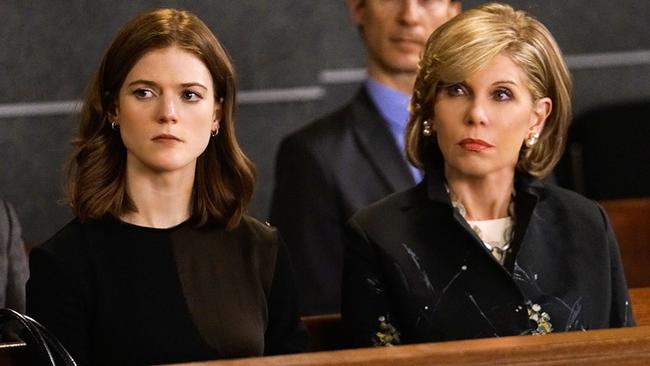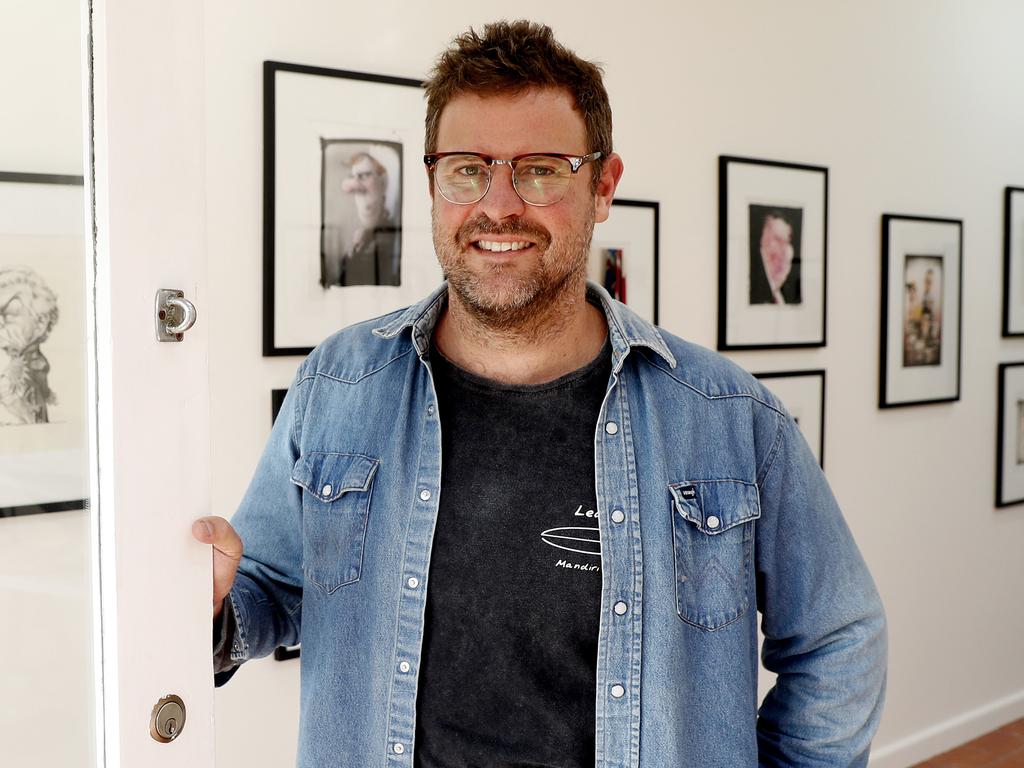
So it’s no surprise that a recent episode of the excellent American television series The Good Fight nails the problems we are facing over language.
It’s a very funny show, which, like this paper’s cartoonist Johannes Leak, does not take itself too seriously but can drive a stake through doublespeak while still being laugh-out-loud clever.
Episode seven of season five – you can find it on SBS OnDemand – gives us a lesson in just how crazy cancel culture can get.
First up, a trigger warning: The Good Fight is fiction, so don’t get too steamed up by what follows.
The episode features a university professor who is in trouble with her black students for using the word “niggardly” during a lecture. Laugh out loud indeed as the judge struggles to understand why a word that means miserly, grudging or parsimonious should be banned in public.
The judge – who’s not really a judge but running his own alternative courtroom for settling disputes, a storyline about institutional disruption worthy of another discussion – agrees to substitute “N-word-ly” while the protagonists fight it out.
It’s delicious and complicated and the show has its own problems working out an answer. In the end, the judge finds for the professor – not on the grounds that “niggardly” is innocuous, but on the grounds that it’s OK for students to feel challenged and uncomfortable in the classroom.
Even so, the satire is excellent and we’re left in little doubt that in the scale of things, this complaint is, well, niggardly.
Back to Johannes Leak and this week’s decision by the Australian Press Council that his August 14, 2020 cartoon featuring Joe Biden saying “It’s time to heal a nation divided by racism … so I’ll hand you over to this little brown girl while I go for a lie down” had caused “offence and prejudice”.
I smiled when I saw the cartoon that day. Biden’s clumsy use of language he ought to have known was tricky deserved to be called out. Fair play.
Silly me. It was only later I realised Johannes was attacking Biden on identity politics. This I didn’t like so much: I didn’t agree with his attack on the then-presidential candidate’s bona fides on issues of racism and equality.
Biden had been inept, but I did not see him as any more or less hypocritical than most of us when it comes to complex questions of colour, race and power and I thought Johannes was too tough on the Democrat. But it was still a great cartoon and the idea that anyone could be offended when reading “little brown girl” seemed a stretch too far.
But offended they were, and now the Press Council’s decision reminds us that it’s important to reflect personally and collectively about the balance between language and common sense.
There are so many words that we used without thought 30 or 40 years ago that are now deeply offensive to many people. We owe it to our society to be vigilant about language because language flows from and creates attitudes.
Call someone a Negro rather than an African-American in private if you must, but know that if you do the same in public you are being deliberately and deeply offensive – and not just to people of colour. My spell check, quite correctly, warns me not to use the word. But context is everything in this case. Not so the other N-word, surely beyond the pale in any setting.
Years ago, when I heard a shock-jock use the word “poofter”, I was horrified. The problem, I thought then and now, is that today it’s just slang on the radio, but tomorrow it’s a bashing in a park. Language is deeply rooted in our power structures, our histories, and yes, sadly our prejudices whether overt or unrecognised.
I was reminded of this recently when talking about “respite” for people with disabilities.
Another innocuous word, we might think, one that we use often to discuss the care of elderly parents or others who need assistance. Respite for them, and respite for us, when they spend time in a care facility. But I understand that some now find it insulting, categorising people as burdens rather than equal partners in the relationships they have with carers and indeed the wider society.
It doesn’t take long to realise our views of the aged – and of those with a disability – are coloured by the words we choose when we pack them off to “respite” rather than organise for them to spend the night or week away from home.
Niggardly, for me at least, is an easy one to shrug off, but there are many other words that help define out attitudes and are worth a little reflection.







The best popular culture has a way of cutting through the big political and social issues of the day.